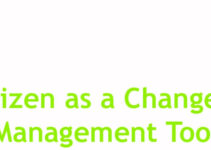Businesses and organizations are always transforming from one state to another in order to exploit opportunities, gain a competitive edge, deal with various issues, and improve performance. That’s why companies allocate a specific position of a change manager to handle the change initiate today, we’ll discuss what does a change manager do; key titles, qualifications, job description, and responsibilities attached to the role.
Titles of a Change Manager
Different organizations have the position of change manager under different names. Some of the key titles for the change manager are as follows;
- Specialist
- Practitioner
- Manager
- Leader/Lead
- Facilitator
- Coordinator
- Consultant
- Advisor
- Analyst
Some of the other titles for the change manager are as follows;
- Strategy realization analyst
- Change realization leader
- Benefits realization manager
- Business transformation manager
- Implementation Specialist
- Organizational adoption leader
- Business transition analyst
- Organizational readiness analyst
- Business readiness leader
What Does a Change Manager Do?
The change manager plays a significant role in the organizational change management program like implementing the new system, software, tool, organizational structure, technologies, or business processes. They have got a vision and mission to make the organizations ready for change, decreasing the negative effect of the change, maximizing the benefits from the change program, and increasing ROI (return on investment).
Change managers have to execute change management strategies and practices in order to make sure that the employee resistance level is lower and the change acceptance level is higher. They collaborate with various people at different levels of the organization. In fact, they offer support and advice to the executives and supervisors to implement the change program rightly.
Qualification & Skills of a Change Manager
Some of the key qualifications and skills required for the role of a change manager are as follows;
- Certificates of change management or any other relevant desired designation
- Experienced in the mass scale organizational change programs
- Knowledge of different project management strategies, project lifecycles, stages, and tools
- Comprehension and experience in dealing with organizational challenges and issues
- Team play and knowing how to collaborate and coordinate with other team members
- The capability to work effectively at different levels of the organization
- Recognizing the skill of diagnosing the root cause and problem resolution
- Well-organized and natural interest in organizational strategies and policies
- Forward-looking with a careful approach
- Firm and resilient with the capability to persevere
- Embracing and flexible attitude with the capability to work in complicated situations and circumstances
- Capability to influence and convince others towards achieving the company’s goals and objectives
- Developing and retaining power relationships with various stakeholders
- Remarkable verbal and written communication skills
- Knowledge and expertise in change management strategies, principles, tools, and software
- Comprehension of collaborating with people during the transitional stages
Job Description of a Change Manager
The role of the change manager is significant in making sure that the company is moving in the right direction to reach its goals and objectives on time. The change manager would focus on dealing with the human side of the change initiative like organizational structure, job roles, technology, and system, training people to embrace change, supporting, and preparing.
The primary obligation of a change manager is to establish and execute change management strategies and practices in order to increase the employee acceptance rate. Their other duties are planning and taking steps to reduce the resistance level among employees and various stakeholders of the company.
The objective of a CM is to speed up and boost the change acceptance level, effectively employ the transitional program, and efficiently implement the changes in their working routine life. It would result in the form of the following;
- Achieving outcomes and results,
- Higher ROI,
- Value creation
- Benefits realization
Some change managers have got supervisory obligations and others do not have them; they should collaborate with others for the success of the organization. They would act as executives, senior leaders, coaches, and mentors, and they would also play the role of change management sponsors. They offer support and guide supervisors so that they would help their team members to implement the change. However, they also support project managers and team members during the change implementation change of the project.
Responsibilities of a Change Manager
Some of the key responsibilities of the change managers are as follows;
- Leading the change management activities and implementing strategies, mythologies, and processes
- Supporting the communication steps like planning, creating, and delivering
- Analyzing the change impact, observing their readiness, and recognizing key stakeholders
- Supporting the training program by fulfilling documentary requirements, designing and delivery of presentation
- Managing the portfolio
- Helping the change management at the organization and corporate level
- Designing the metrics in order to evaluate the performance
- Reporting and tracking issues
- Managing relationships with stakeholders
- Analyzing and making sure that the employees are ready
- Combining change management processes and activities into a proper plan
- Coordinating efforts with other stakeholders of the company
- Defining roles and responsibilities and helping the design
- Training to the supervisors and other departmental managers
- Developing a plan in case of resistance
- Discussing and mentoring project team members
- Recognizing and managing resistance
- Preparing, recognizing, and analyzing strategies to decrease the risk factor
- Finishing the change management analysis
Conclusion: What Does a Change Manager Do?
After an in-depth study of what does a change manager do; job description, roles, and responsibilities; we have realized that the role of a CM is highly significant. If you are learning about the job description, and responsibilities of the CM, then you should keep in mind the abovementioned guidelines.
Ahsan is an accomplished researcher and has a deep insight in worldly life affairs. He goes Live 3 days a week on various social media platforms. Other than research writing, he’s a very interesting person.


